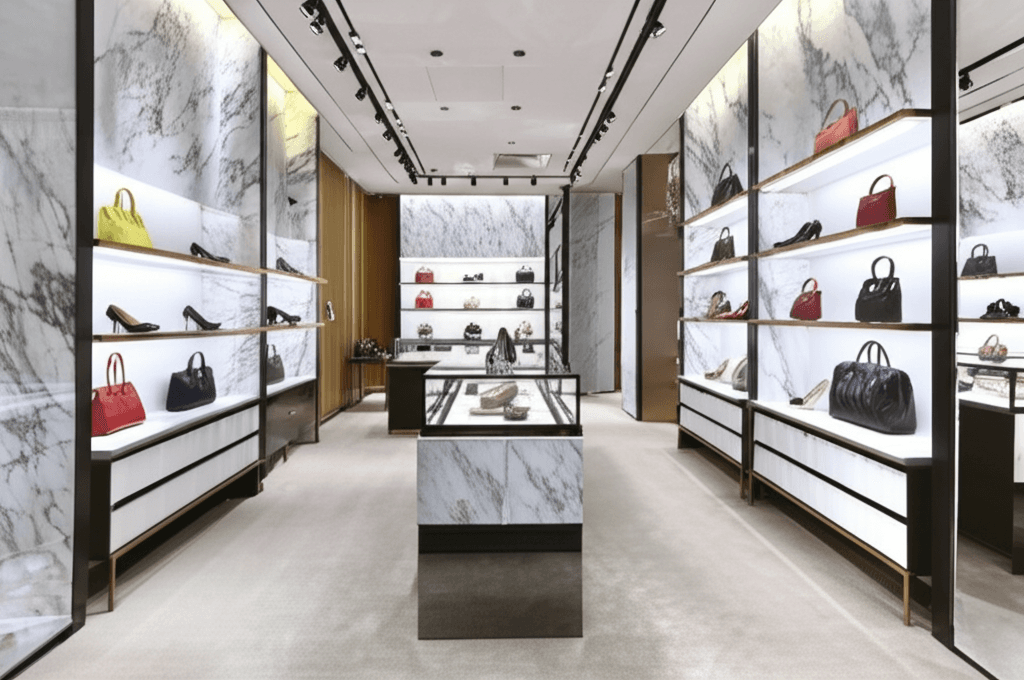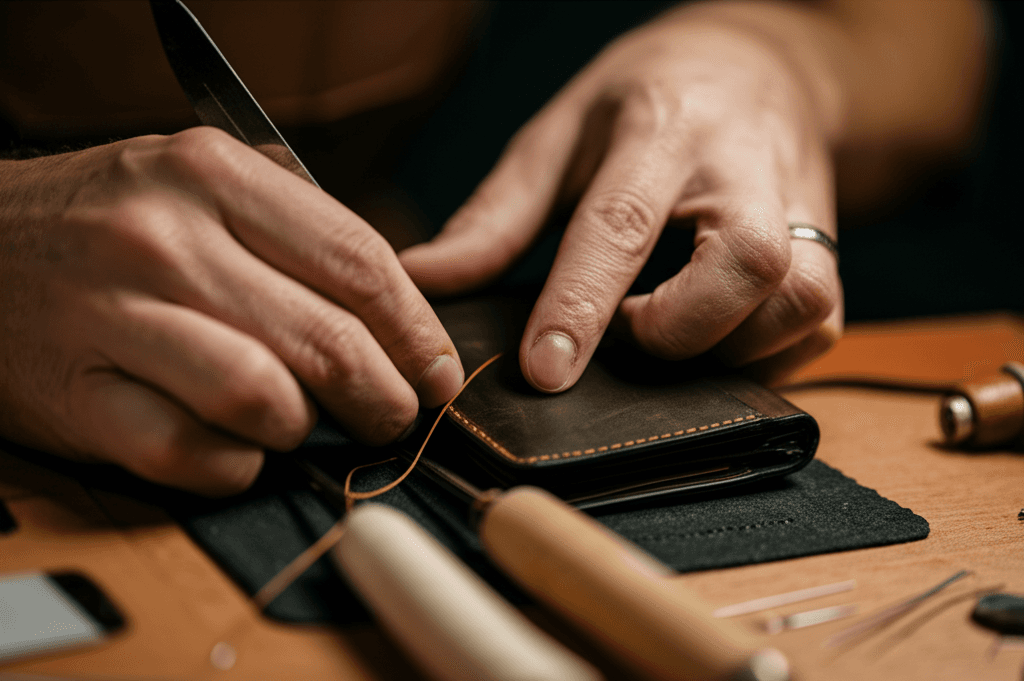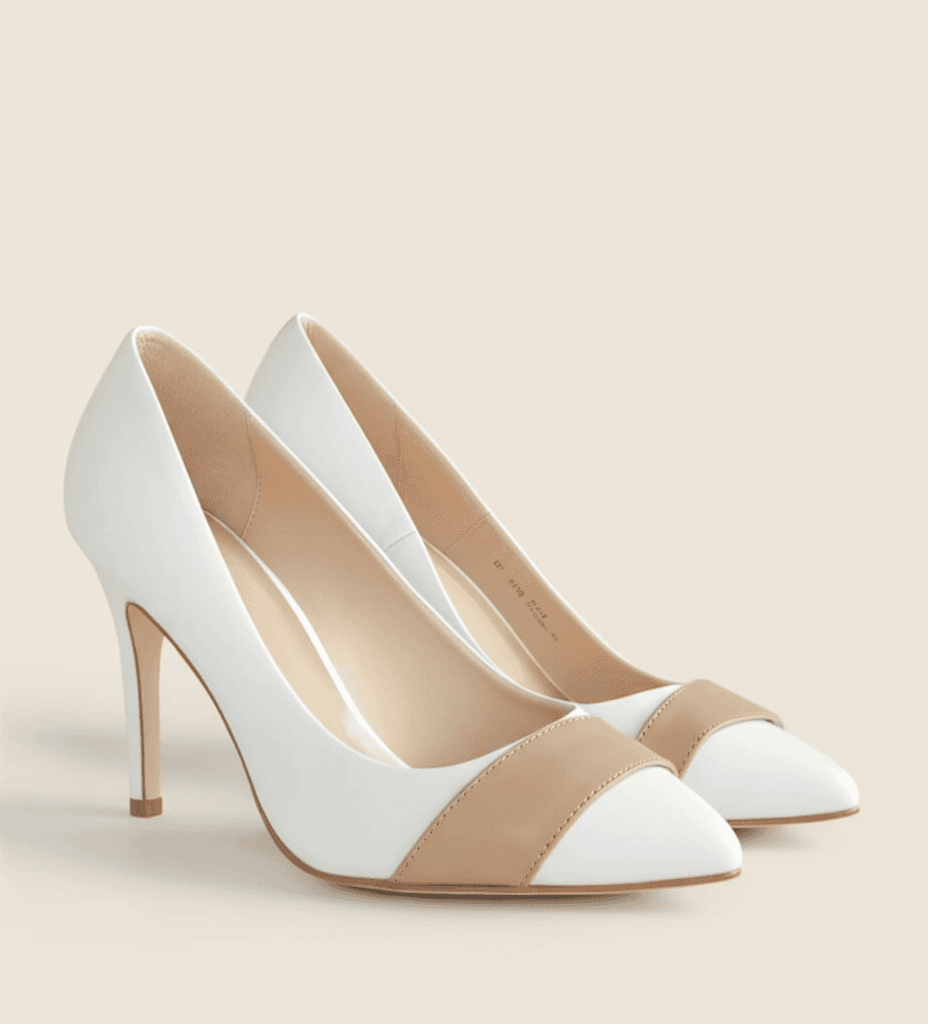
How to Care for Your Leather Shoes During Lebanon's Rainy Season
Lebanon's rainy season brings much-needed precipitation to our beautiful country, but it also presents challenges for leather shoe enthusiasts. Between November and March, when Mediterranean storms sweep through Beirut and moisture settles over the mountains, your premium leather footwear needs extra attention to stay looking pristine.
At Manufact Lebanon, we believe that proper care extends the life of your leather shoes indefinitely. With the right techniques and a little preventive maintenance, you can protect your investment pieces from water damage, salt stains, and the humid conditions that characterize Lebanese winters.
Understanding How Water Affects Leather
Leather is a natural, porous material that absorbs water when exposed to rain or puddles. This absorption can lead to several issues: water stains, color fading, stiffening, and in severe cases, cracking or separation of the leather. Lebanon's coastal humidity compounds these problems, as damp leather is also susceptible to mildew growth.
The good news? With proactive protection and proper cleaning techniques, you can minimize water's harmful effects and keep your premium leather shoes looking beautiful year-round.
Waterproofing: Your First Line of Defense
Prevention is always better than cure. Before the rainy season begins, apply a quality waterproofing spray specifically designed for leather. These protective sprays create an invisible barrier that repels water while allowing the leather to breathe.
How to waterproof your leather shoes:
- Clean shoes thoroughly and let them dry completely
- Apply waterproofing spray in a well-ventilated area, holding the bottle 6-8 inches away
- Cover the entire surface evenly, including seams and stitching
- Allow to dry for 24 hours before wearing
- Reapply every 4-6 weeks during rainy season or after heavy exposure to water
For residents of coastal areas like Beirut, Jounieh, or Tripoli where humidity is consistently high, consider waterproofing your entire leather shoe collection at the start of autumn.
What to Do When Your Shoes Get Wet
Despite your best efforts, sometimes your leather shoes will get caught in Lebanon's sudden downpours. Here's exactly what to do when that happens:
Immediate steps:
As soon as you get home, remove excess water by gently patting (never rubbing) with a soft, absorbent cloth. Don't use heat sources like hairdryers or radiators, as rapid drying causes leather to crack and warp.
Proper drying technique:
Stuff shoes with plain white paper (newspaper ink can transfer and stain) or shoe trees to maintain their shape. Change the paper every few hours as it absorbs moisture. Place shoes in a well-ventilated area at room temperature – never in direct sunlight or near heaters.
Conditioning after drying:
Once completely dry (usually 24-48 hours), apply a quality leather conditioner. This replenishes the natural oils lost during water exposure, keeping leather supple and preventing cracks. Work the conditioner in with circular motions using a soft cloth.
Dealing with Salt and Water Stains
Lebanon's roads are occasionally treated with salt during winter, especially in mountain areas. Salt can create white, chalky stains on leather that are damaging if left untreated.
Removing salt stains:
Mix equal parts white vinegar and water. Dip a soft cloth in the solution, wring it out well, and gently wipe the stained areas. Follow up immediately by wiping with a cloth dampened with plain water. Let dry naturally, then condition the leather.
For water stains that create a ring or darker area, you may need to wet the entire shoe surface evenly to redistribute the water marks, then dry and condition as described above.
Storage Tips for Humid Lebanese Weather
Proper storage is crucial during Lebanon's humid winter months. Moisture trapped in closets can lead to mildew, unpleasant odors, and leather deterioration.
Best practices for storage:
- Never store damp shoes – ensure they're completely dry first
- Use cedar shoe trees, which absorb moisture and maintain shape
- Store in breathable dust bags, not plastic (leather needs air circulation)
- Keep shoes in a cool, dry place with good ventilation
- Place silica gel packets in your shoe storage area to combat humidity
- Rotate your shoes – wearing the same pair daily doesn't allow proper drying time
Special Care for Different Leather Types
Not all leather requires identical care. Different leather finishes need tailored approaches:
Smooth leather: Most responsive to standard waterproofing and conditioning treatments described above.
Suede and nubuck: More vulnerable to water damage. Use suede-specific waterproofing spray and a suede brush to restore nap after drying. Avoid water-based cleaners.
Patent leather: Wipe clean with a damp cloth and dry immediately. Patent leather is more water-resistant but can crack if not properly maintained.
Building a Leather Care Kit
Every leather shoe owner in Lebanon should have these essentials on hand:
- Quality leather waterproofing spray
- Leather conditioner or cream
- Soft cleaning cloths (microfiber works well)
- Suede brush for nubuck and suede shoes
- Cedar shoe trees
- White vinegar for salt stain removal
- Leather-specific cleaning solution
This investment of a few hundred thousand LBP can save you from costly shoe replacements and keep your premium leather looking showroom-fresh.
When to Seek Professional Help
For severe water damage, deep stains, or valuable designer pieces, professional leather restoration is worth the investment. Look for reputable cobblers or leather specialists in Lebanon who understand premium leather care. At Manufact Lebanon, we can recommend trusted professionals who work with quality leather goods.
Final Thoughts: Prevention is Key
Lebanon's rainy season doesn't have to mean hiding your beautiful leather shoes in the closet. With proper preventive care, quick action when shoes get wet, and regular maintenance, your premium leather footwear can withstand our Mediterranean winters beautifully.
Remember: quality leather, when properly cared for, actually improves with age. The patina that develops over years of use adds character and uniqueness to your shoes. By protecting them during rainy months, you're ensuring they'll serve you stylishly for decades to come.
Visit Manufact Lebanon at our Koūsha boutique for personalized advice on caring for your specific leather shoes, or explore our collection of premium leather footwear designed to weather Lebanon's diverse climate in style.
--- ## Related Articles ### Mediterranean Climate Leather Care: Complete Lebanon Protection Guide 2025 **Highly Related** • Care & Maintenance Protect your leather goods in Lebanon's humid Mediterranean climate. Expert guide to summer heat, winter rain, salt air, and humidity protection for p... [Read More →](/blog/mediterranean-climate-leather-care-lebanon) ### How to Break In New Leather Shoes Without Pain: Expert Methods **Highly Related** • Care & Maintenance Master the art of breaking in new leather shoes comfortably. Professional techniques to soften leather, prevent blisters, and achieve perfect fit fast... [Read More →](/blog/how-to-break-in-new-leather-shoes) ### Summer Leather Care: Protecting Your Goods from Middle Eastern Heat **Highly Related** • Care & Maintenance Essential guide to maintaining leather bags, shoes, and accessories during Lebanon's intense summer heat. Expert tips for preventing heat damage and c... [Read More →](/blog/summer-leather-care-middle-eastern-heat) ### Complete Guide to Winter Leather Boot Care in Lebanon 2025 **Highly Related** • Care & Maintenance Expert tips for maintaining your leather boots during Lebanon's rainy winter season. Learn waterproofing, cleaning, and storage techniques specific to... [Read More →](/blog/winter-leather-boot-care-lebanon) ### Ultimate Leather Care Guide: How to Maintain Your Premium Leather Goods **Highly Related** • Care & Maintenance Learn professional techniques to keep your leather bags, shoes, and accessories looking pristine for years. Complete guide with expert tips.... [Read More →](/blog/ultimate-leather-care-guide) ### Lebanese Artisan Leather Heritage: Centuries of Craftsmanship & Tradition **Related Topic** • Lebanese Heritage Explore Lebanon's rich leather craftsmanship heritage. Discover centuries of traditional techniques, cultural significance, and the Manufact story of ... [Read More →](/blog/lebanese-artisan-leather-heritage-centuries-craftsmanship)Tagged In
Enjoyed this article?
Visit our boutique at Al-Arz Highway Koura Plaza, Koūsha, Lebanon to experience our handcrafted leather collection in person.
Related Articles

Mediterranean Climate Leather Care: Complete Lebanon Protection Guide 2025
Protect your leather goods in Lebanon's humid Mediterranean climate. Expert guide to summer heat, winter rain, salt air, and humidity protection for premium leather.

How to Break In New Leather Shoes Without Pain: Expert Methods
Master the art of breaking in new leather shoes comfortably. Professional techniques to soften leather, prevent blisters, and achieve perfect fit faster.

كيفية تليين أحذية الجلد الجديدة بدون ألم: طرق الخبراء
تعلم أساليب الخبراء لتليين أحذية الجلد الجديدة بشكل مريح. نصائح مثبتة لتجنب البثور والألم أثناء عملية التليين.